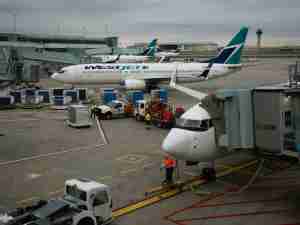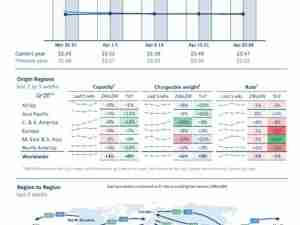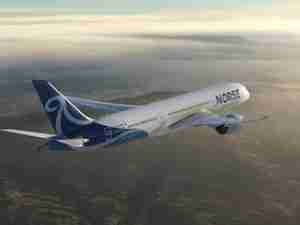The Association's comments follow a decision by the Hesse Administrative High Court in Germany to ban night flights at Frankfurt Airport. TIACA's Chairman, Michael Steen, stated: 'The imposition of a noise curfew doesn't occur in a vacuum, it must be looked at holistically because banning night flights has wide ranging consequences. It means air services will be eliminated with negative impact not only on the airlines but shippers and all the businesses and consumers linked to the shipments. It also results in flights being re-routed over longer distances or flown at different times which can lead to greater congestion and emissions during daytime hours.'
TIACA says night-flights are often the best or only way for cargo flights to perform their vital role as a crucial component of global supply chains, enabling just-in-time business strategies and fostering economic growth. Air cargo operators, it says, tend to utilize night-time hours not simply because those are the slots available but because that timeframe is critically linked to expedited delivery for the cargo once it's on the ground.
Imposing bans, the Association warns, will have a 'domino effect' that penalizes businesses and consumers that rely on efficient global supply chains, often more than they realize.
Michael Steen added: 'It is very easy for courts to impose restrictions on airport operations but they fail to take into account the economic importance air cargo operations bring to airports and their local business communities. At airports around the world, all-cargo operations are often forced to fly night-time operations because of slot restrictions that have been steadily increased over the years, particularly as passenger flights are usually given preference ahead of freighter services. The air cargo supply chain has adapted to cope with these changes but now faces a situation where all-cargo operations could be effectively forced away from major airports. This would have a considerably wider effect than the judicial system is likely to take into account.
'Generally when decisions like this are taken, it is the air cargo industry that suffers most of all. However, it is wrong to assume that it is only our industry that bears the pain. Air cargo traffic, for example, is already moving away from Frankfurt as a result of the court's decision and you have to assume this will affect employment at the airport and in businesses in the surrounding areas. It will also add to the cost of goods for businesses in the Frankfurt area as they will now have to be trucked into the city from other airports that allow night flights with the added cost this will entail. This cost will have to be borne by companies and their customers. Other airport regulators around the world need to consider all of these factors if they are faced with having to review the overall impact of night flights.'
TIACA said it hoped the German Federal court in Leipzig would overturn the night flight ban at Frankfurt Airport. It also described the short notice given ahead of the suspension of night flights as 'disrespectful' to airlines and other businesses that have played such a vital role in Frankfurt's prosperity and growth.
'There is still time for the Federal court to look at the bigger picture and we hope that will lead to this decision being reversed. Frankfurt Airport is one of the world's most important air cargo airports and it has demonstrated its long-term commitment to supporting our industry. It understands that an efficient air cargo supply chain is essential for Germany's manufacturing industry and for the country's economy. We would expect the Federal court to reach the same conclusion. As well as recognizing the commercial importance of night flights, it should also be influenced by the technological advances in the aviation industry that since the early days of the airport will have seen a 70% reduct








